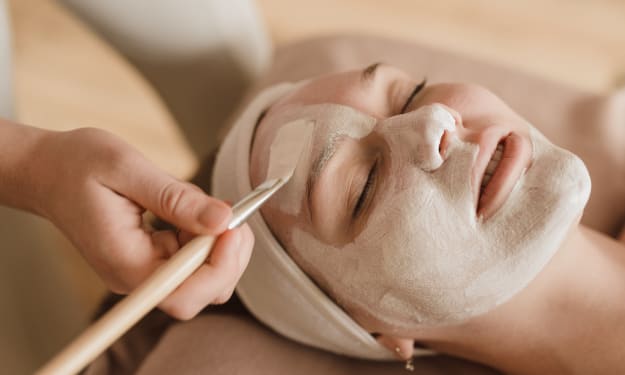What Causes Dandruff and How to Treat it?
Dandruff is a chronic condition that can occur in anyone, regardless of age, gender, or ethnicity.

Dandruff is a common skin condition that affects the scalp, causing flakes of dead skin to shed from the scalp. This condition is not harmful, but it can be embarrassing and uncomfortable, leading to itching and flaking of the scalp. Dandruff is a chronic condition that can occur in anyone, regardless of age, gender, or ethnicity. This article will discuss what causes dandruff and how to treat it effectively.
Causes of Dandruff:
Fungal Infections: Fungal infections are the most common cause of dandruff. The fungus known as Malassezia is naturally present on the scalp. However, when it grows uncontrollably, it can cause dandruff. The fungus feeds on the oils secreted by the scalp, leading to an overproduction of skin cells, which ultimately leads to dandruff.
1. Dry Skin: Dry skin is another common cause of dandruff. When the scalp is dry, it can become flaky and itchy, leading to dandruff. This is more common during the winter months, when the air is drier.
2. Seborrheic Dermatitis: Seborrheic dermatitis is a skin condition that causes red, itchy, and flaky skin on the scalp. It can also affect other parts of the body, including the face and chest. This condition is caused by the overproduction of sebum, a natural oil produced by the skin. Seborrheic dermatitis can also be caused by stress, genetics, and hormonal changes.
3. Certain Skin Conditions: Certain skin conditions, such as psoriasis and eczema, can also cause dandruff. These conditions can cause the skin to become inflamed and itchy, leading to flaking and dandruff.
4. Improper Hair Care: Improper hair care can also cause dandruff. Using too many hair products, such as gels and sprays, can irritate the scalp and lead to dandruff. Not washing the hair regularly can also cause dandruff, as dead skin cells and oils can accumulate on the scalp.
How to Treat Dandruff:
1. Use Anti-Dandruff Shampoo: The most effective way to treat dandruff is to use an anti-dandruff shampoo. These shampoos contain ingredients that help to kill fungus-causing dandruff and reduce inflammation on the scalp. Some common ingredients in anti-dandruff shampoos include zinc pyrithione, selenium sulfide, and ketoconazole.
2. Keep the Scalp Moisturized: Keeping the scalp moisturized can also help to reduce dandruff. Use a moisturizing shampoo and conditioner, and avoid using hair products that can dry out the scalp, such as gels and sprays.
3. Avoid Stress: Stress can trigger seborrheic dermatitis, leading to dandruff. Practice stress-reducing techniques, such as yoga, meditation, and deep breathing exercises.
4. Eat a Healthy Diet: A healthy diet can also help to reduce dandruff. Eat foods that are rich in vitamins and minerals, such as fruits, vegetables, whole grains, and lean proteins. Avoid foods that are high in sugar and unhealthy fats, as these can exacerbate dandruff.
5. Get Enough Sleep: Getting enough sleep is also important for reducing dandruff. Lack of sleep can increase stress levels, which can trigger dandruff. Aim to get at least 7-8 hours of sleep each night.
6. Consult a Dermatologist: If dandruff is persistent and does not respond to over-the-counter treatments, consult a dermatologist. A dermatologist can prescribe stronger anti-dandruff medications, such as prescription-strength shampoos or topical creams. They may also recommend light therapy or oral medications to manage the condition.
7. Maintain Good Hygiene: Good hygiene practices can also help to prevent and manage dandruff. Wash the hair regularly with a gentle shampoo and avoid using hot water, as this can dry out the scalp. Use a clean towel to dry the hair and avoid sharing combs, brushes, and other accessories.
8. Try Natural Remedies: Natural remedies, such as tea tree oil, apple cider vinegar, and aloe vera, can also help to reduce dandruff. These remedies have anti-inflammatory and antifungal properties that can help to kill the fungus causing dandruff and soothe the scalp. However, it is important to note that natural remedies may not be as effective as prescription-strength treatments and should not replace medical advice from a dermatologist.
In conclusion, dandruff is a common skin condition that can be uncomfortable and embarrassing. The condition can be caused by various factors, including fungal infections, dry skin, seborrheic dermatitis, certain skin conditions, and improper hair care. Effective treatments for dandruff include using anti-dandruff shampoos, keeping the scalp moisturized, reducing stress, eating a healthy diet, getting enough sleep, consulting a dermatologist, maintaining good hygiene, and trying natural remedies. With proper care and treatment, dandruff can be managed and controlled, allowing individuals to maintain healthy and comfortable scalps.
About the Creator
iefsafrica
I like writing and drinking coffee.
Buy me a coffee ☕: https://ko-fi.com/iefsafricagroup45913
Support me:https://medium.com/@iefsafrica/membership (affiliate)






Comments
There are no comments for this story
Be the first to respond and start the conversation.